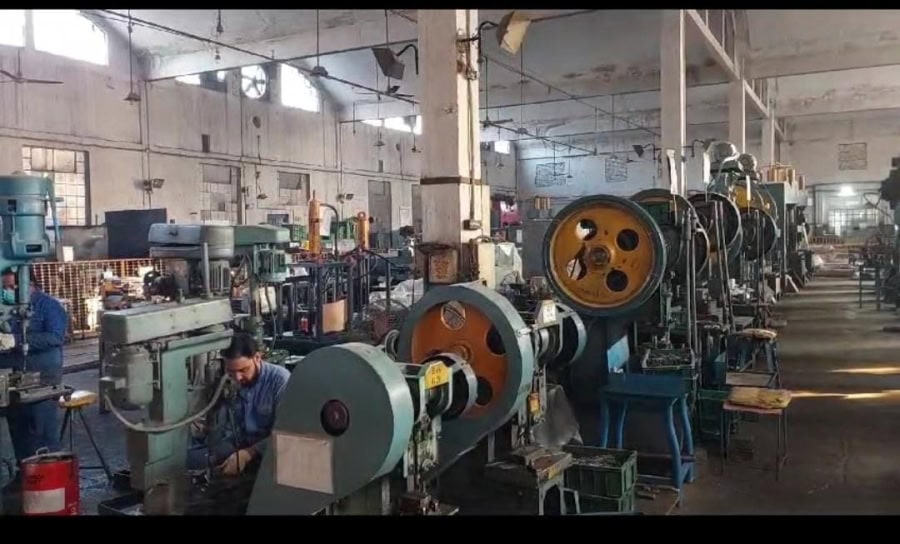LAHORE – The investment of millions of rupees in the latest machinery and infrastructure by local auto vendors is being underutilized on low-capacity volumes due to supply chain disruptions and weak demand.
“Our efficiency got affected due to economic conditions as vendors’ current capacity utilization is between 60 to 70 per cent,” said Haroon Arshad, Chief Executive Officer, Ravi Autos Sundar (Pvt.) Ltd. while talking to journalists during their visit to vendor manufacturing plants in Lahore.
He said that the current economic situation has impacted the vendor industry at every level due to weak demand, LCs issues, and its effect on current businesses.
Haroon Arshad said that total car sales clocked in at 26,988 units for the initial four months of the current Fiscal Year 2023-24, down by 44pc, from 48,573 units in the same period last fiscal year.
“This is the trickle-down effect and aftermath of frequent plant shutdowns on numerous issues including the opening of LCs, depressed automobile demand due to the shrinking economy and soaring prices of vehicles, high auto financing due to unbearable interest rate hikes, and rising petroleum prices,” reasoned Haroon.
Salman Saleem, Chief Executive, National Automotive Components (Pvt.) Ltd. said that the import of used cars is another big factor behind downfall of local auto vendors, and is still playing havoc with vendors’ investments.
He added that from July to October of the current FY23-24 alone, more than 10,575 used cars were imported, while in the whole year’s span of FY22-23 total of 6,050 used cars were imported.
“Used cars constitute 28pc of the total market in four months of FY 2023-24, while for Oct ’23 only, they have claimed 50pc of the total market share,” he said.
While showing how localized parts are produced, Salman said that purchasing of new machinery by vendors in turn supported manufacturing’s efficiency, however, it also brings a huge challenge to retain employees due to low volumes.
CEO, Indus Motor Company, Ali Asghar Jamali informed that IMC continues to move ahead with its plans of launching Pakistan’s first locally made hybrid C SUV very soon.
“IMC, as promised, has completed investing $100 million on hybrid project, including the investment of Rs 6.85 billion on all the vendors combined in terms of machinery buying and tooling,” he said.
Highlighting the investment done by vendors in the past years to enhance production, Jamali said that the total investment made by all the vendors combined to accommodate C SUV project is Rs 2.78 Billion, and this investment includes investments made by RAVI and NAC as well.










